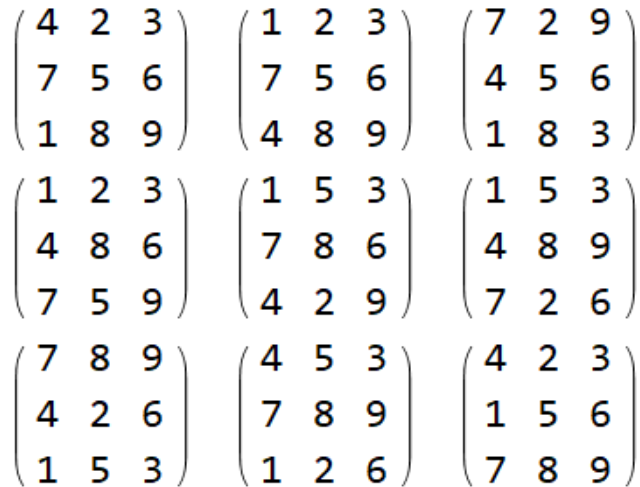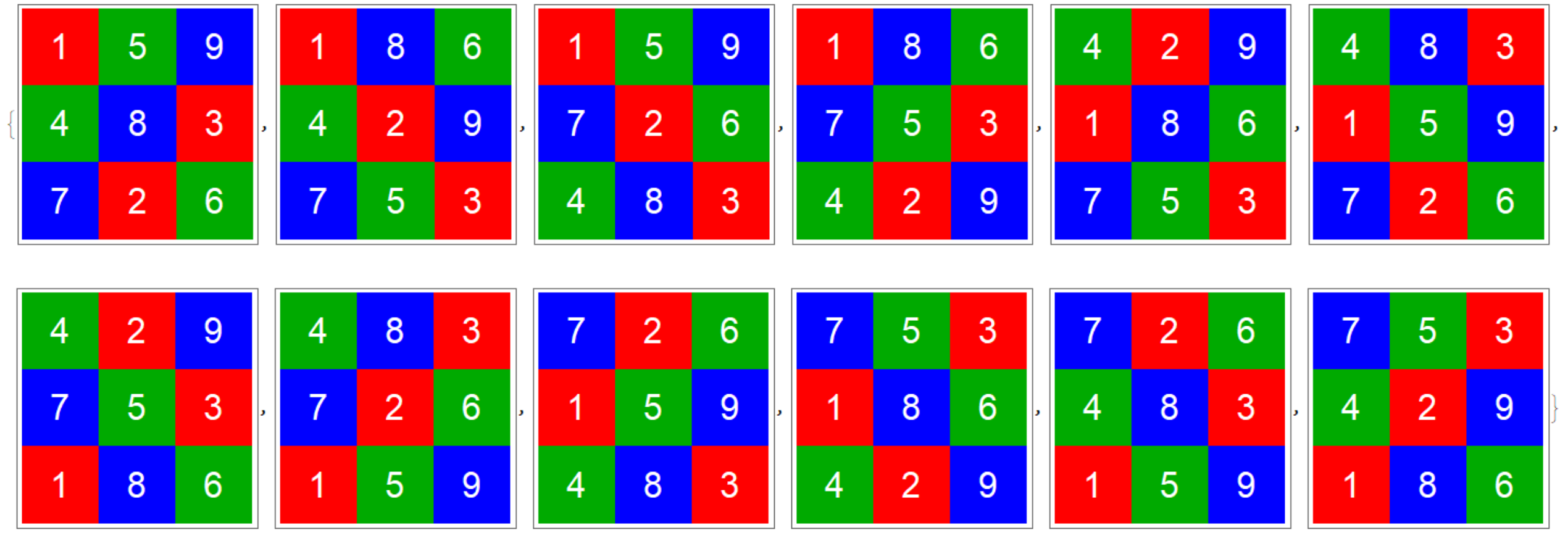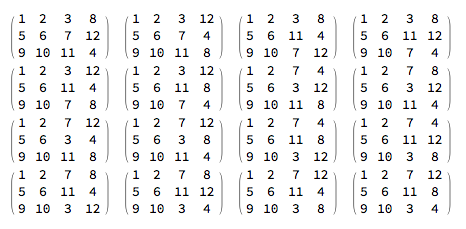Assume I have a matrix.
(mat = Partition[Range@9, 3]) // MatrixForm
mat$=\left( \begin{array}{ccc} \color\red1 & \color\red2 & \color\red3 \\ \color\green 4 & \color\green5 & \color\green6 \\ \color{blue}7 & \color{blue}8 &\color{blue} 9 \\ \end{array}\right)$
I would like to scramble matrix matcolunmn-wise to generate all possible new matrix newMat under some condition.
Conditions are:
1) Column elements of
matmust stay in their column, i.e. 1st column ofnewMatmust be one of the elements of thePermutations[{1, 4, 7}, {3}]={{1, 4, 7}, {1, 7, 4}, {4, 1, 7}, {4, 7, 1}, {7, 1, 4}, {7, 4, 1}}; And similarlycol2$\in$Permutations[{2,5,8}, {3}]andcol3$\in$Permutations[{3,6,9}, {3}].2) 1st row of
matis{1,2,3}and thus 1st Row entries ofnewMat, should not contain any of element of thisset= {{1, 2}, {1, 3}, {2, 3},{1,2,3}}i.e. pairs or triple. The same for row 2 and row 3.
...............
..................
$\{1,4,7\}$ must stay in the 1st column, $\{2,5,8\}$ must stay in the 2nd column, $\{3,6,9\}$ must stay in the 3rd column. Every row has distinct colors.
....
.....
Some of the undesired newMat: It passes first condition but not second condition.

For $3\times3$ there are only 3!2!1!= 12 matrices satisfies the condition which shows below. For $4\times4$ there are only 4!3!2!1!= 288
Good candidate:
newMat$=\left( \begin{array}{ccc} \color{red}1 & \color{blue}8 & \color{green}6 \\ \color{green}4 & \color{red}2 & \color{blue}9 \\ \color{blue}7 & \color{green}5 &\color{red} 3 \\ \end{array} \right)$
I would like to generate all $4\times4$ square matrices and if possible/easy all $5\times4$ matrices (there are 5!4!3!2!=34560). Any suggestion.
Edit
After I used @yohbs code I was able to generate all desired matrices but it is not efficient for $4\times4$ matrices.
{r, c} = Dimensions[mat];
perms = Permutations[Range@r];
q = 1 + IntegerDigits[Range[(r!)^c], r!, c];
allScrambles =
Transpose[
Table[mat[[perms[[q[[i, j]]]], j]], {j, c}, {i, Length@q}], {3, 1,
2}];
sub = Join @@ (Subsets[#, {2}] & /@ mat);
ArrayPlot[#,
ColorRules -> {1 | 2 | 3 -> Red,
4 | 5 | 6 -> Darker@Green, _ -> Blue},
Epilog -> {MapIndexed[
Text[Style[#1, White, 26], Reverse[#2 - 1/2]] &,
Reverse[#], {2}]}] & /@ sol


